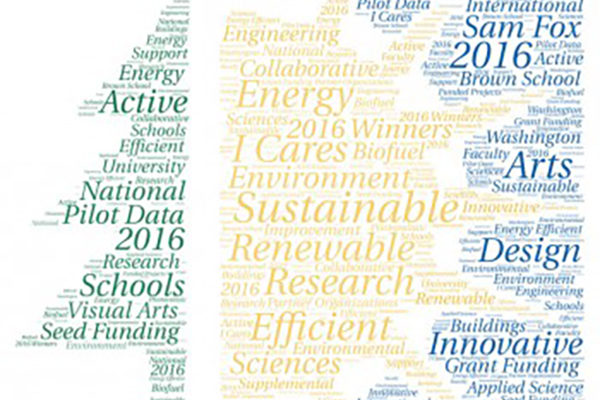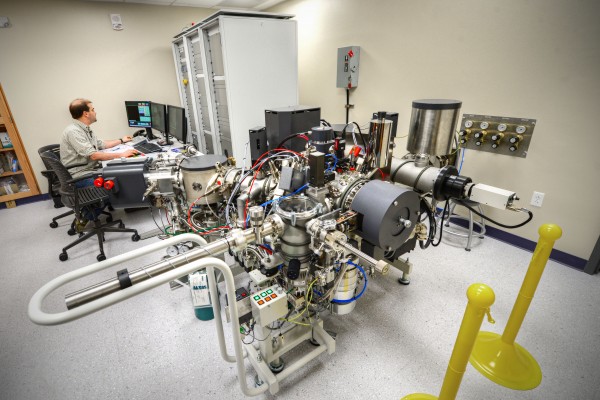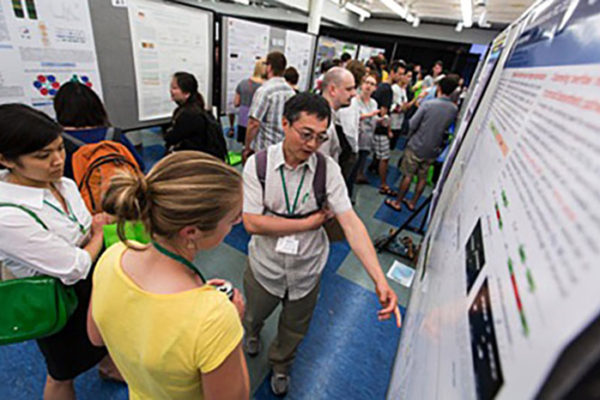I-CARES 10th anniversary celebration planned
On Earth Day, in honor of the 10th anniversary of the International Center for Advanced Renewable Energy and Sustainability (I-CARES), Washington University in St. Louis will hold a special celebration from 3-5 p.m. Saturday, April 22, at Emerson Auditorium in Knight Hall.
WashU Expert: What about environmental regulations?
During his campaign, President-elect Trump publicly stated that he would cut back the Environmental Protection Agency and also vowed to eliminate other federal regulations in place to protect the environment. Brent Williams, the Raymond R. Tucker Distinguished I-CARES Career Development Associate Professor, shares his views on what would happen should those changes take effect.
I-CARES names Fike associate director
The International Center for Advanced Renewable Energy and Sustainability (I-CARES) has named David Fike associate director and an I-CARES professor.
I-CARES announces 2016 research projects
The International Center for Advanced Renewable Energy and Sustainability (I-CARES) at Washington University in St. Louis has named the funding recipients from its 2016 call for proposals. I-CARES supports researchers who focus on renewable energy, climate change and sustainability.
$2.4 million instrument upgrade will let scientists see what is happening inside microbes
The U.S. Department of Energy has awarded David Fike, PhD, associate professor of earth and planetary sciences, $2.4 million to adapt a powerful chemical microscope called the 7F-GEO SIMS for biological samples. The updated instrument’s ability to map the chemistry inside cells will boost research on microbes that are promising candidates for biofuel or bioenergy production.
Renewable energy certificate awarded
p.MsoNormal, li.MsoNormal, div.MsoNormal
{margin:0in;margin-bottom:.0001pt;font-size:12.0pt;font-family:”Times New Roman”;}
.MsoChpDefault
{font-size:10.0pt;}
@page WordSection1
{size:8.5in 11.0in;margin:1.0in 1.25in 1.0in 1.25in;}
div.WordSection1
{page:WordSection1;}
Four students at Washington University in St. Louis
successfully completed the Certificate in Renewable Energy and the Environment
this year
and were recognized at an event at the Whittemore House.
Cyanobacterium found in algae collection holds promise for biotech applications
Cyanobacteria are attractive organisms for the bio-production of fuels, chemicals and drugs but have the drawback that most strains in common use grow slowly. This week scientists at Washington University reported that they have recovered a fast-growing strain of cyanobacteria from a stored culture of a cyanobacterium originally discovered in a creek on the campus of the University of Texas at Austin in 1955. The new strain grows by 50 percent per hour, the fastest growth rate ever reported for this type of bacteria.
Pakrasi receives grant for U.S.-India synthetic biology workshop
Himadri B. Pakrasi, PhD, received a $49,448 grant from the National Science Foundation to support the “Indo-U.S. Workshop on Synthetic and Systems Biology” being held this November in New Delhi. Pakrasi is the Myron and Sonya Glassberg/Albert and Blanche Greensfelder Distinguished University Professor and director of the International Center for Advanced Renewable Energy and Sustainability (I-CARES).
Sustainable design
Winning teams in the I-CARES Student Competition displayed their sustainability projects on the Danforth Campus of Washington University in St. Louis last week. The annual competition asks students to propose a physical installation in the area of climate change, renewable energy or sustainable design.
Photo-palooza
More than 1,000 science researchers from around the world descended upon St.
Louis during the second week of August for what Provost Holden Thorp,
PhD, wittingly referred to as “Photo-palooza” for the gathering’s focus on photosynthesis research.
Washington University’s International Center for Advanced Renewable
Energy and Sustainability (I-CARES) served as host to the 11th Workshop
on Cyanobacteria and the Photosynthetic Antenna Research Center (PARC)
hosted the Light Harvesting Satellite Meeting 2013.
View More Stories



